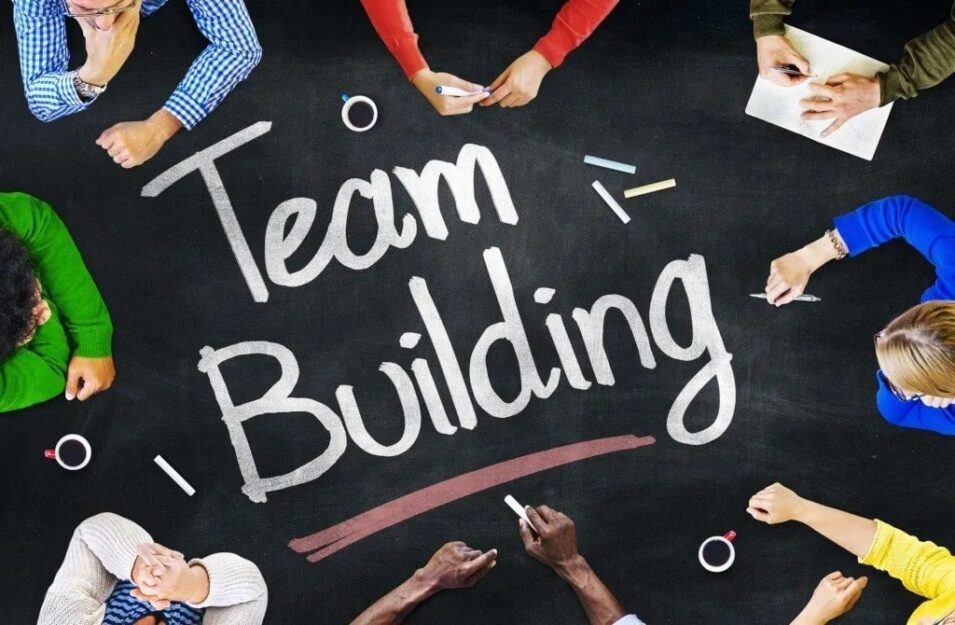Corporate teams are an essential component of any profitable company. These teams are made up of people with various skill sets, backgrounds, and viewpoints who collaborate to accomplish a shared objective. It is crucial to create a solid, cohesive team that can function as a unit in the fast-paced, cutthroat business environment of today. This is where corporate team-building activities come in and if you want to know about old ones and new ones then make sure you find here what you need.
Activities for team building are intended to enhance communication, foster trust, and encourage cooperation among staff. These are fantastic approaches to encourage cooperation among team members and help them get to know one another outside of the confines of the office. Team building exercises have improved over time, becoming more enjoyable, interesting, and efficient.
Corporate teams are collections of workers who cooperate to accomplish a shared objective or finish a specific project. Teams like this are frequently created to combine people with various skill sets, areas of experience, and knowledge to do tasks that would be challenging or impossible for one person to complete alone. Every sector has corporate teams, which are crucial to any company’s success. Teams with members from several departments can be cross-functional teams, or teams with members who have a similar area of expertise or skill set can be functional teams.
Building a strong, cohesive team that can function as a unit to accomplish a shared objective is the process of team building. It incorporates team-building exercises that encourage cooperation, communication, and trust. The purpose of team building is to raise morale, productivity, and performance on the team.
The Benefits of Team Building

As you may expect, these kinds of training and workplace cohesiveness have a lot of long- and short-term advantages. While certain benefits are apparent right away and others take a little longer to become apparent, it doesn’t imply they exist or that the organization won’t benefit from them. These are a few of the most important advantages:
1. Improved Problem-Solving Skills
Problem-solving tasks that demand cooperation between teams are a common component of team-building exercises. These activities can aid team members in strengthening their ability to think critically, interact successfully, and take a more original approach to problem-solving.
2. Increased Motivation
Your employees may lack motivation depending on the surroundings and work environment. If this isn’t addressed, it might become a serious issue at work if it isn’t handled and remedied. Participating in team-building activities can assist to increase the motivation and spirit of the team. Team members are more likely to be inspired to provide their best effort when they feel connected and respected.
3. Enhanced Leadership Skills

Team members may have the chance to assume leadership roles and hone their leadership abilities via team-building exercises. For team members who are newer or less experienced and may not have had many opportunities to take the initiative in their responsibilities, this can be very helpful.
4. Greater Understanding of Roles and Responsibilities
Participating in team-building activities helps improve team members’ understanding of their tasks and roles. This can facilitate job delegation more effectively and improve workflow, as well as prevent misconceptions about responsibilities and the procedures that must be completed to complete a task.
4. Improved Creativity and Innovation
A creative and imaginative work environment is crucial, especially in this day and age. As a result of participating in team-building activities that promote innovation and creative thinking, teams become more flexible and adaptive. Everything focuses on higher technology, ongoing advancements, and thinking outside the box. In sectors where change is quick and ongoing, this may be especially crucial.
6. Better Conflict Resolution

Conflicts and problems exist in every workplace and work environment. There will be sparks amongst team members if they are highly educated, imaginative, and ready to explode at any given moment. Every team may experience conflict at some point, but team building activities can teach members how to handle disagreements more skilfully. Team members can acquire the skills necessary to handle disputes when they emerge by practising communication and problem-solving techniques in a low-risk environment. A happier, more agile work atmosphere results from fewer issues, disputes, and better problem-solving.
Some of you might not be aware of this, but throughout the years, testing, team-building exercises, and other things have included a lot, and some changes are astounding. If you wanted the outcomes to be favourable, these had to follow the human psyche’s evolution as well. Corporate team-building exercises have changed greatly throughout the years, as was already indicated. Team-building games like trust falls and obstacle courses that participants had to navigate while wearing blindfolds were formerly a common theme at these events. While these activities are still useful, they are dwindling in popularity as new, more interesting ones are developed.
Escape rooms are a common trend in business team-building exercises. Escape rooms are immersive activities that test teams’ ability to figure out puzzles and riddles to get out of a locked room. Teams must successfully collaborate and communicate to do these activities. Since they are enjoyable, interesting, and great for fostering teamwork and trust, escape rooms have grown in popularity among corporate groups.
The use of virtual team-building exercises is another well-liked trend. Virtual team development exercises have grown in significance with the expansion of remote employment. These exercises can come in a variety of formats, including virtual team-building simulations, online games, and quizzes. The collaboration and communication between distant team members can be improved through virtual team-building exercises.
Building trust, boosting communication, and fostering collaboration among team members are all made possible through corporate team-building exercises. While trust-building exercises like trust falls are still useful, new and more entertaining activities like escape rooms and virtual team-building exercises are being developed. Corporate teams may boost performance and output while having fun and forging better bonds with their co-workers by participating in these activities. To many these things sound silly and unnecessary but in reality if you want a cohesive and effective team, corporate team building with implementation of newer solutions is a must, no matter which branch your business is in and what you do.










